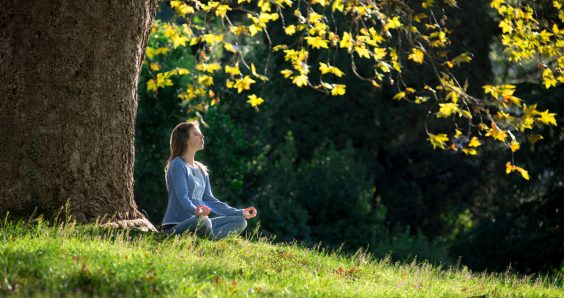Coping with ‘Exam Anxiety’
with Dr Cate Howell
The RACGP Fellowship Examinations are approaching, and I have been asked to write about exam anxiety. First up, this is quite a difficult piece to write—not because I don’t know what to say in terms of managing anxiety, but because there are a whole group of hard-working and intelligent doctors about to sit the exam, who know a lot about anxiety! So, I have decided to deal with this by simply talking with you in the same way as I would with anyone about anxiety. Hopefully you may learn a bit more about yourself, and find a few more tools for managing exam anxiety.
First, some questions:
- Do you feel worried about the upcoming exam? On a scale of 0-10, how anxious do you feel? (Don’t panic, even if you feel very anxious, there are strategies that can help!)
- How much preparation/practice have you done? (The more prepared you are, the more confident you will feel).
- How confident do you feel at this stage? (Do you need to work on this?)
- Are you a perfectionist, and has procrastination been a problem? (More on this later in the blog.)
- What has helped you with dealing with exam anxiety in the past? (Do more of this!)
Next, some psycho-education. Let’s normalize exam anxiety! Most people get some anxiety with exams, and a certain level of anxiety can help your performance. Too much, however, can detract from it (e.g. blood going to the muscles and away from the brain is not helpful!). Remember that anxiety is part of our protective ‘fight-flight-freeze’ response—it feels pretty awful, but won’t do any harm. It is good to know your triggers for anxiety, and the symptoms that you experience, so that you can work through how to better manage these.
Also, don’t forget about your internal ‘stress bucket’. This may have been pretty full, with demands related to family, work, training, and finances, before stress from examinations was added in. If you are currently operating near the top of your stress bucket, and therefore at risk of ‘spilling over’, then you need to get a few demands out of your bucket (e.g. let go of some things, say ‘no’, delegate, get more help). This will also give you more time to be organized, to study and to relax!
“It is vital to invest in time to relax, whether via sport, meditation or having a bath.”
You will know about the CBT model, which is very helpful in managing anxiety. The basis of it is that our thoughts, feelings and actions are all inter-related. So, to reduce anxiety, we can work on our behaviours and our thinking.

It is useful to start with behaviours that trigger relaxation, as this is the opposite of stress or anxiety! But with our busy lives, we often lose sight of its value. It almost seems too simple! It is vital to invest in time to relax, whether via sport, meditation or having a bath. And mastering your breathing is key. It is our portable relaxation tool, and breathing effectively can help you feel calmer, and can effectively reduce the physical symptoms of anxiety. Start some regular breathing techniques as prevention for stress and anxiety, and use them early to short-circuit any anxiety symptoms.
There are many useful breathing techniques – perhaps start with slow breathing:
Make yourself comfortable either seated or lying down. Whichever position you choose, ensure your back is straight yet relaxed. Place the middle fingers of both hands on your stomach so they are lightly touching each other. As you breathe in, your middle fingers should gently pull away from each other as the abdomen moves, and as you breathe out they will move to touch each other again as your abdomen falls. Take gentle, medium breaths, rather than really deep breaths. Then repeat this process and try breathing ‘in, two, three; out, two, three’. Make an effort to pause and focus on your breath in ways such as this several times during the day.
Or try:
Breathe in and out through your nose if comfortable with this, or in through the nose and out through the mouth. Simply be aware of the breath in and then the breath out. Breathe at a gentle, slow pace, and feel the cooler air moving in. Breathe out and feel the warmer air move out. Repeat several times. You might like to incorporate saying ‘relax’, ‘peace’ or ‘calm’ in your mind as you breathe out, and focus on letting go of tension and stress each time you breathe out.
Progressive muscle relaxation or visualisations may also be helpful, and again there are good recordings available. Or you may prefer to listen to music or go to a yoga class. Having a good laugh can help you relax, as can exercise or catching up with friends or loved ones.
Be aware of unhelpful thinking patterns, such as catastrophising (‘it’s a disaster’)
With your thinking, be aware of any unhelpful thinking patterns, such as catastrophising (‘it’s a disaster’), or ‘black and white’ thinking in which there is no middle ground (e.g. a small error may be perceived as a failure). The latter can trigger procrastination (see below) or impact your self-confidence. Finding a middle path approach is often helpful – ask yourself where is the middle path between the extremes of thinking.
Other psychological models have brought in useful concepts such as mindfulness and the ‘Wise Mind’. Let’s explore these ideas here. Mindfulness refers to a particular way of paying attention, on purpose and in the present moment. We spend a lot of our time in ‘mindlessness’ (not paying attention) and being caught up in our thoughts. As a result we miss out on experiences in life, and we can get caught up in ruminations about the past or worries about the future. Practising mindfulness involves being more observant and more connected to others and the world. Regular mindfulness practice can relax and refresh your mind.
Try these mindfulness practices:
- Everyday mindfulness e.g. when walking notice how your feet contact the ground or when having a shower feel the hot water on your skin.
- Mindfulness meditations
- Make yourself comfortable and let your eyes close. Notice the chair or bed underneath you, supporting you, and notice the feel of your hands on your lap. Be aware of your breath, of the feel of the air as you breathe in and out, of breathing into the base of your lungs. Feel your abdomen rise and fall. Relax with each breath out. Be aware of the body, of feelings of relaxation flowing from the feet upwards through the body, up through the legs, the back, the chest, the head and neck and down into the arms. Notice how the body feels as you relax. Sometimes it can feel a bit lighter or heavier. Sometimes it feels as if you could not move it even if you wanted to. Now notice the sounds around you. Some are closer and some are further away. Focus on the sounds further away for a few moments. Now focus on the sounds closer to you. What can you hear? Again bring your awareness to the feel of your body and the breath. Have a gentle stretch. Then, when you are ready, open your eyes and be back in the room. Notice what is around you.
- Mindfulness of thoughts
- Notice them and decide which ones to pay attention to, and identify the unhelpful ones that you can let go of (‘thanks brain for that thought’, let the thought float down a stream …).
- Mindfulness of feelings
- Notice the feeling, describe it (where does it sit, what is it like, what does it look/feel like e.g. heavy, black ball), allow yourself to sit with it, breathe into it and out from it.
- Check out the Smiling Mind app or www.actmindfully.com.au recordings.

Mindfulness practice can relax and refresh your mind
Several newer therapies refer to the ‘Wise Mind’. We have an Emotional Mind, when emotions are in the driver’s seat of our lives, and a Thinking Mind. We also have a ‘Wise Mind’ which is calm, logical and flexible. Mindfulness helps activate it – the Wise Mind observes and does not judge. I picture it as an owl in my mind, and it can help you think calmly and logically in times of stress. It can, for example, tell you ‘this is anxiety, breathe and it will pass, breathe and relax’.
A word or two on procrastination may also be helpful. Procrastination can be related to expecting too much of yourself and tending to be a perfectionist, or from fear of failure or criticism, self-doubt, a desire to be approved of by important people in your life or a desire to be in control of things. Here are some tips for dealing with it:
- Identify avoidant behaviours – what do you fear?
- Set some SMART goals – write them down and break them down into smaller steps.
- Be kind to yourself – use kind words, and don’t expect more of yourself, than you would do others.
- Let go of perfectionism – set some limits on what you do.
- Reduce ‘all or nothing’ thinking, such as; “It won’t be any good unless it is perfect”.
- Reward yourself – use a timer, and after 30 or 45 minutes, have a rest, take a walk or have a drink ….
- Break tasks down – one of the biggest reasons we tend to procrastinate is because we become overwhelmed by tasks and don’t know where to start.
- Remember that change is always possible.
As a final suggestion, practise more self-compassion. This means you are kind and understanding towards yourself when faced with challenges, instead of criticising and judging yourself harshly. In simple words, treat yourself as you do others – care for yourself in what you do and how you think.
If you are concerned about the level of exam anxiety, check out online resources and apps (Breathe2Relax, Smiling Mind), talk with your mentors, or seek some help from a GP or mental health professional. My website www.drcatehowell.com.au has a number of resources (blogs, e-books, recordings) which may also be of help.
If you want to feel more confident leading up to your exams, check out AOGP’s exam preparation events, and our exam preparation packages.





